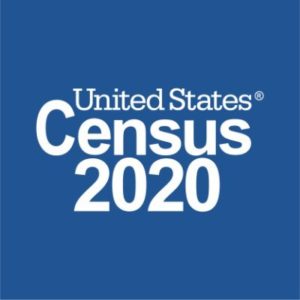Show Them We Count: Census 2020 Cuts Deadline Back to September 30
by Beth
 After years of being overlooked and disregarded, we’re going in the right direction: Diversity has become a buzz word this past year. When people talk about “diversity,” though, the conversation is often limited to ethnicity, race, religion and sexuality.
After years of being overlooked and disregarded, we’re going in the right direction: Diversity has become a buzz word this past year. When people talk about “diversity,” though, the conversation is often limited to ethnicity, race, religion and sexuality.
Let’s use the census as an example. Early this year, the U.S. Census Bureau expanded its massive multimedia advertising campaign on television, radio, newspapers, online – even billboards and bus stops. A press release claims the Census Bureau is “committed to reaching those people who are historically undercounted,” but if that’s true, where are the ads reaching out to people with disabilities?
The U. S. Census Bureau press release says they tested their 2020 ad campaign in over 120 focus groups in their target audiences across the country “to ensure relatability, understanding, cultural relevance, and language interpretation.” Link here to view Examples of 2020 Census ads. I could only listen to the ads — blindness prevents me from taking them in completely,so I might be missing something. So you tell me: are any of them directed to people with disabilities? Does the U.S. Census care if we respond? Do we matter?
In 2010, the official census form every American received in the mail was not available in an accessible format. People who were blind or had visual impairments were told to ask someone we know to help us fill out a census questionnaire, visit a Questionnaire Assistance Center where a paid Census Bureau staff member could help us, or call a toll free number that was available between 8:00 a.m. and 9:00 p.m. 7 days a week.
My husband can see, and he filled out the form for us in 2010.
This year I was able to fill our form out on my own. You can do so too by visiting https://my2020census.gov. The 2020 Census Fact Sheet reports that the 2020 online questionnaire follows the latest Website Accessibility Content Guidelines (WACG) and that Braille and large print guides can also be provided for those who prefer responding by U.S. mail.
Why do I care about all this? Why is it so important for me, a person with a disability, to be counted? Why do I want the government to think we matter enough to come up with an ad encouraging us to make sure we’re counted, too? Here’s why:
- Transportation. My community uses census data when planning for public transit routes, upgrades and changes. Billions of dollars in federal funds are distributed for transportation projects, including public transit, accessible pedestrian signals, and truncated domes at intersections. I need all of those things to get around the city safely. The funding our state gets is based on census data. If I am not counted, that could mean less money for my city and state for these projects. I need to be counted.
- Health and Social Services. My state receives billions of federal dollars to support a wide variety of programs, including funding for services I use that are specifically for people with blindness and vision loss. I need to be counted.
- Representation. The number of people who respond in my community and state will determine the number of Electoral votes we get to help choose who becomes president, the number of seats our state gets in the U.S. House of Representatives, and how the congressional and state legislative districts are drawn. I need to be counted.
After previously stating the census would run through October 31, last week the bureau announced it was cutting the count short by a month, moving the deadline for responding to the 2020 Census up to September 30, 2020. We may not be included in the U.S. Census Bureau’s ad campaign, but This year, while the world faces the impact of COVID-19, people with disabilities need to be counted. More than ever.






